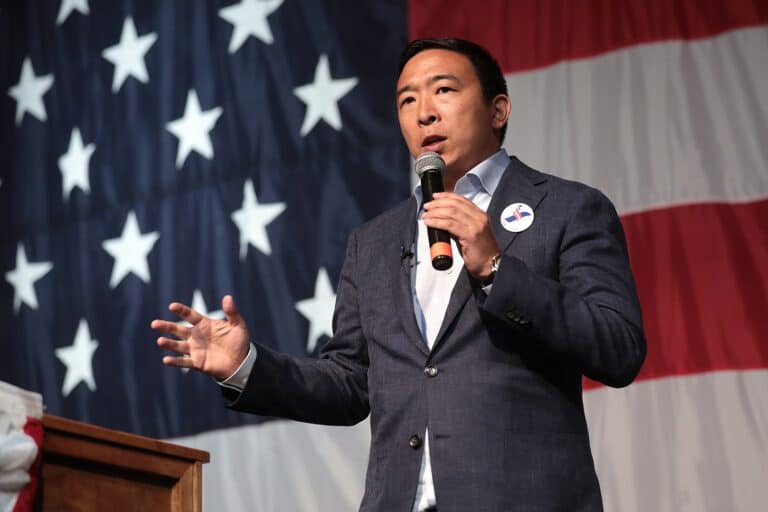
Benjamin Sachs is the Kestnbaum Professor of Labor and Industry at Harvard Law School and a leading expert in the field of labor law and labor relations. He is also faculty director of the Center for Labor and a Just Economy. Professor Sachs teaches courses in labor law, employment law, and law and social change, and his writing focuses on union organizing and unions in American politics. Prior to joining the Harvard faculty in 2008, Professor Sachs was the Joseph Goldstein Fellow at Yale Law School. From 2002-2006, he served as Assistant General Counsel of the Service Employees International Union (SEIU) in Washington, D.C. Professor Sachs graduated from Yale Law School in 1998, and served as a judicial law clerk to the Honorable Stephen Reinhardt of the United States Court of Appeals for the Ninth Circuit. His writing has appeared in the Harvard Law Review, the Yale Law Journal, the Columbia Law Review, the New York Times and elsewhere. Professor Sachs received the Yale Law School teaching award in 2007 and in 2013 received the Sacks-Freund Award for Teaching Excellence at Harvard Law School. He can be reached at [email protected].
The debate between Brishen Rogers and Andy Stern points to important questions about the best strategy for achieving a progressive UBI in the United States. We look forward to publishing Rogers’ reply to Stern soon. In the meantime, I want to offer a thought about one small piece of the exchange. For Stern, Rogers’ political approach to securing a UBI amounts to “playing defense” – something Stern considers part of a political “loser mentality.” Without taking a view about which political approach to winning a UBI is the correct one, I do have a different understanding of what Rogers is advocating: I would describe it as playing the long game, rather than as playing defense.
Rogers argues that a UBI would require “a massive redistribution of income and wealth” and therefore that the taxes required to fund a UBI would be borne, not just by the super wealthy, but by the top 20% of the income spectrum. Rogers then argues that, unless we change something more fundamental about our political economy, that 20% would oppose a UBI: these upper-middle class families would be responsible for funding the UBI, but the UBI “would not deliver anything of value to them.” And, Rogers concludes, this group is politically powerful enough to kill a progressive UBI. So, Rogers writes:
If any UBI were passed tomorrow, the wealthy and the upper-middle class would surely push for its repeal. We could then end up with no UBI, no social insurance, and no welfare benefits, which would be a disaster.
For Stern, this is “defensive” political thinking. He argues that “[y]ou cannot make progress playing defense” and responds to Rogers’ point by writing:
Reminder: that is the loser mentality! The labor movement thought that way for over 30 years prior to 2009, and did not support or introduce labor law reform legislation at the Federal level, and you see where they got us. Time to think like a winner!
Again, I do not have a firm view about which political approach is the right one when it comes to the UBI, and I have enough experience with Stern to defer to his political judgment. But Rogers’ position is better understood as playing the long game than as playing defense. After all, what Rogers is calling for is a fairly fundamental reordering of our political economy – developing what he calls a different “way[] of organizing a vibrant capitalist economy.” For Rogers, we need such a fundamental reordering in order to ensure the political conditions necessary to support a progressive UBI. Moreover, the political economy we need is one defined by a significantly expanded set of public entitlements, and by income compression policies that will raise the wages of the bottom 50% and reduce the wealth of the top 20%. Here’s how Rogers sums up:
Such income compression policies are crucial because they alter a country’s class structure and political economy. After getting a raise, workers may have higher expectations for their future, and may be more willing to fight for that future. The organizations that lead these battles could emerge more powerful, and act as a counterweight to wealthy interests in our politics. They could then advocate for other programs to help workers, including childcare, health care, greater investment in education and infrastructure, and perhaps even formal limits on salary differences between high- and low-wage employees.
Ideally this would create a virtuous cycle, where those at the top enjoy some discrete benefits such as cheaper health care and public education, and perhaps less status anxiety. They may then start accumulating and consuming fewer positional goods. In the longer term, as the distribution of income and power in society begins to change, a progressive UBI may then become politically feasible.
Rogers rightly estimates that his strategy for achieving a progressive UBI would take decades, not years. It may never occur. But, to me, this is not defensive thinking. It’s a serious offensive strategy designed to achieve fundamental change, in the long run.








Daily News & Commentary
Start your day with our roundup of the latest labor developments. See all
July 11
Regional director orders election without Board quorum; 9th Circuit pauses injunction on Executive Order; Driverless car legislation in Massachusetts
July 10
Wisconsin Supreme Court holds UW Health nurses are not covered by Wisconsin’s Labor Peace Act; a district judge denies the request to stay an injunction pending appeal; the NFLPA appeals an arbitration decision.
July 9
In Today’s News and Commentary, the Supreme Court green-lights mass firings of federal workers, the Agricultural Secretary suggests Medicaid recipients can replace deported farm workers, and DHS ends Temporary Protected Status for Hondurans and Nicaraguans. In an 8-1 emergency docket decision released yesterday afternoon, the Supreme Court lifted an injunction by U.S. District Judge Susan […]
July 8
In today’s news and commentary, Apple wins at the Fifth Circuit against the NLRB, Florida enacts a noncompete-friendly law, and complications with the No Tax on Tips in the Big Beautiful Bill. Apple won an appeal overturning a National Labor Relations Board (NLRB) decision that the company violated labor law by coercively questioning an employee […]
July 7
LA economy deals with fallout from ICE raids; a new appeal challenges the NCAA antitrust settlement; and the EPA places dissenting employees on leave.
July 6
Municipal workers in Philadelphia continue to strike; Zohran Mamdani collects union endorsements; UFCW grocery workers in California and Colorado reach tentative agreements.